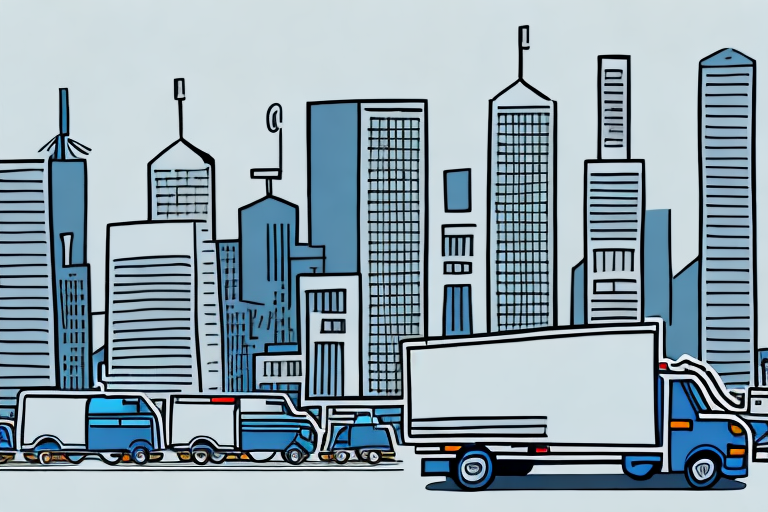Introduction to FedEx and Its Services
Founded in 1971, FedEx has evolved into one of the world's leading delivery and logistics companies. Operating in over 220 countries and territories, FedEx provides a wide range of services including package delivery, freight transportation, and critical document handling. Additionally, the company offers comprehensive business solutions encompassing printing, e-commerce, and advanced logistics services.
FedEx is committed to sustainability, implementing initiatives such as investing in alternative fuel vehicles and utilizing eco-friendly packaging materials. Furthermore, the company actively engages in philanthropic efforts, supporting various charitable organizations and disaster relief initiatives globally.
The Critical Role of On-Time Deliveries
Timely deliveries are paramount for both businesses and consumers. According to a Statista report, over 80% of customers consider timely delivery as a key factor in their satisfaction with a delivery service. Late deliveries can lead to missed deadlines, lost revenue, and diminished customer trust.
Consistently on-time deliveries help build customer loyalty and trust, fostering repeat business and positive word-of-mouth. Additionally, punctual deliveries enhance operational efficiency by minimizing disruptions in the supply chain, thereby reducing costs and optimizing resource utilization.
Key Factors Leading to FedEx Delivery Delays
High Package Volume During Peak Seasons
During peak seasons such as holidays, FedEx experiences a significant surge in package volumes. This influx can overwhelm sorting and delivery systems, resulting in delays. According to FedEx's annual report, holiday seasons can increase shipment volume by up to 30%, putting additional strain on the delivery network.
Weather-Related Disruptions
Severe weather conditions like snowstorms, hurricanes, and heavy rainfall can disrupt transportation networks, leading to delayed deliveries. Even milder weather, such as heavy rain or high winds, can pose safety risks for drivers and pilots, forcing FedEx to alter delivery schedules or reroute packages.
Traffic Congestion in Urban Areas
Urban areas often grapple with traffic congestion, which slows down delivery vehicles and increases transit times. In cities like New York and Los Angeles, where traffic can add significant delays, FedEx employs strategic routing and scheduling to mitigate these impacts.
Human Error in Package Handling
Despite advanced automation, human error remains a potential cause of delays. Mistakes in labeling, scanning, or sorting can misdirect packages, necessitating additional handling to correct the errors. FedEx invests in extensive employee training and automated systems to minimize such occurrences.
Challenges in International Deliveries
International shipments face additional complexities, including customs clearance, varying regulations, and language barriers. Delays can occur if documentation is incomplete or incorrectly filled out. Tariffs, import duties, and local taxes can also contribute to unexpected delays and costs.
Technological Innovations Enhancing Delivery Efficiency
Real-Time Package Tracking
FedEx's real-time tracking system allows customers to monitor their packages at every stage of the delivery process. This transparency enhances customer satisfaction and enables proactive management of potential delays.
Automated Sorting Systems
Advanced automated sorting systems utilize sophisticated algorithms to expedite the processing of packages. According to a Forbes article, automation can increase sorting efficiency by up to 50%, significantly reducing the time required to process and dispatch packages.
Mobile Applications and Customer Interfaces
FedEx's mobile app provides customers with convenient access to tracking information, delivery scheduling, and notifications. This user-friendly interface enhances the overall delivery experience and allows for better personal management of shipments.
Emerging Technologies: Drones and Autonomous Vehicles
FedEx is at the forefront of integrating emerging technologies such as drones and autonomous vehicles into its delivery network. These innovations have the potential to streamline deliveries, especially in remote or hard-to-reach areas, and reduce dependency on human labor.
FedEx's Strategies to Minimize Delivery Delays
Enhanced Transportation Infrastructure
FedEx continually invests in expanding and upgrading its transportation infrastructure. This includes increasing its fleet of aircraft and ground vehicles, as well as optimizing delivery routes to enhance efficiency and reduce transit times.
Proactive Delay Mitigation Measures
Utilizing advanced analytics and real-time monitoring, FedEx can identify potential delays before they occur. This proactive approach allows the company to implement corrective actions swiftly, ensuring timely deliveries.
Practical Tips for Customers to Avoid Package Delays
- Verify Recipient Information: Ensure that all recipient details and delivery instructions are accurate to prevent misrouting.
- Use Scheduled Delivery Options: Choose delivery times that best fit your availability to minimize missed deliveries.
- Monitor Your Shipment: Regularly track your package to stay informed about its status and any potential delays.
- Avoid Peak Shipping Periods: If possible, schedule shipments during off-peak times to reduce the likelihood of delays.
- Opt for Faster Shipping Services: While more expensive, expedited shipping can ensure quicker delivery times.
- Properly Package Your Items: Use sturdy packaging and adhere to carrier guidelines to prevent damage and delays.
The Financial and Reputational Impact of Late Deliveries
Late deliveries can have profound financial implications for businesses, including lost sales, increased operational costs, and diminished customer loyalty. A study by Invesp indicates that 89% of consumers are less likely to purchase from a company again after experiencing a poor delivery service.
For consumers, delayed deliveries can result in inconvenience and potential financial loss, especially when time-sensitive items are involved. Moreover, repeated delays can tarnish a company's reputation, leading to decreased market share and negative brand perception.
Environmental consequences also arise from late deliveries. Multiple delivery attempts increase fuel consumption and emissions, contributing to environmental degradation and higher operational costs.
Filing a Claim for Delayed FedEx Packages
If your package experiences a delay that results in missed deadlines or financial loss, you may be eligible for compensation through FedEx's claims process. To file a claim:
- Visit the FedEx Claims page.
- Provide the necessary documentation, including shipment details and proof of financial loss.
- Submit the claim online or contact FedEx customer service for assistance.
FedEx reviews each claim on a case-by-case basis, and compensation is typically provided if the delay is attributable to FedEx's service shortcomings.
Conclusion: Enhancing Delivery Reliability with FedEx
While FedEx endeavors to maintain high standards of timely and reliable delivery services, various factors can still cause delays. Understanding these causes and implementing proactive measures can help both the company and its customers mitigate potential disruptions. Through continuous investment in technology, infrastructure, and customer-focused strategies, FedEx strives to enhance delivery reliability and maintain its position as a leader in the logistics and delivery industry.








